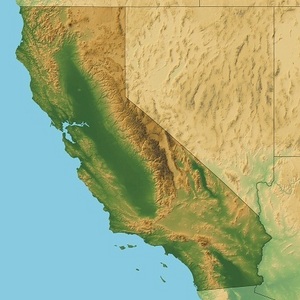CARB files response to LCFS rehearing petition

November 1, 2013
BY Erin Krueger
In early October, petitions were filed in the U.S. Court of Appeals for the 9th circuit, requesting a rehearing en banc with regard to a September ruling that determined California’s low carbon fuel standard (LCFS) does not violate interstate commerce laws. That opinion, filed by a panel of three judges, overturned a December 2011 ruling by the district court that the program did facially discriminate against out of state ethanol, impermissibly engaged in extraterritorial regulation of ethanol production and discriminated against out-of-state crude oil. According to court documents, the California Air Resources Board (CARB) was required to file a response to the rehearing petition within 21 days. The board filed that response Oct. 24.
In its response, CARB disputes the allegation that the LCFS undermines the national economy. Rather, CARB said the program is actually “designed to establish a market for a diverse array of low-carbon, alternative fuels.”
Regarding the claim that the LCFS facially discriminates against out-of-state ethanol, CARB argues that the LCFS actually distinguishes ethanol on the basis of its greenhouse gas (GHG) emissions, not its origin, adding that to date it has assigned the most favorable GHG scores to ethanol produced out of state. CARB also specifies that the LCFS does not isolate the state by rising barriers to the free flow of interstate trade.
In addition, CARB addresses the claim that the LCFS regulates extraterritorially, essentially arguing that out-of-state fuel producers may choose to—but are not required to—reduce GHG emission in order to compete more effectively in California markets. In the response, CARB said the petitioners’ interpretation of the law would prevent a state from regulating its own market when doing so may affect the choices made by out-of-state firms competing in that market.
Advertisement
The response also address claims made to crude oil, and concludes by arguing that the court’s decision is consistent with precedent set by the Supreme Court and with case law of other circuits. As a result, CARB has requested the petitions for a rehearing en banc are denied.
Advertisement
Related Stories
The U.S. Energy Information Administration maintained its forecast for 2025 and 2026 biodiesel, renewable diesel and sustainable aviation fuel (SAF) production in its latest Short-Term Energy Outlook, released July 8.
XCF Global Inc. on July 10 shared its strategic plan to invest close to $1 billion in developing a network of SAF production facilities, expanding its U.S. footprint, and advancing its international growth strategy.
U.S. fuel ethanol capacity fell slightly in April, while biodiesel and renewable diesel capacity held steady, according to data released by the U.S. EIA on June 30. Feedstock consumption was down when compared to the previous month.
XCF Global Inc. on July 8 provided a production update on its flagship New Rise Reno facility, underscoring that the plant has successfully produced SAF, renewable diesel, and renewable naphtha during its initial ramp-up.
The U.S. EPA on July 8 hosted virtual public hearing to gather input on the agency’s recently released proposed rule to set 2026 and 2027 RFS RVOs. Members of the biofuel industry were among those to offer testimony during the event.
Upcoming Events










